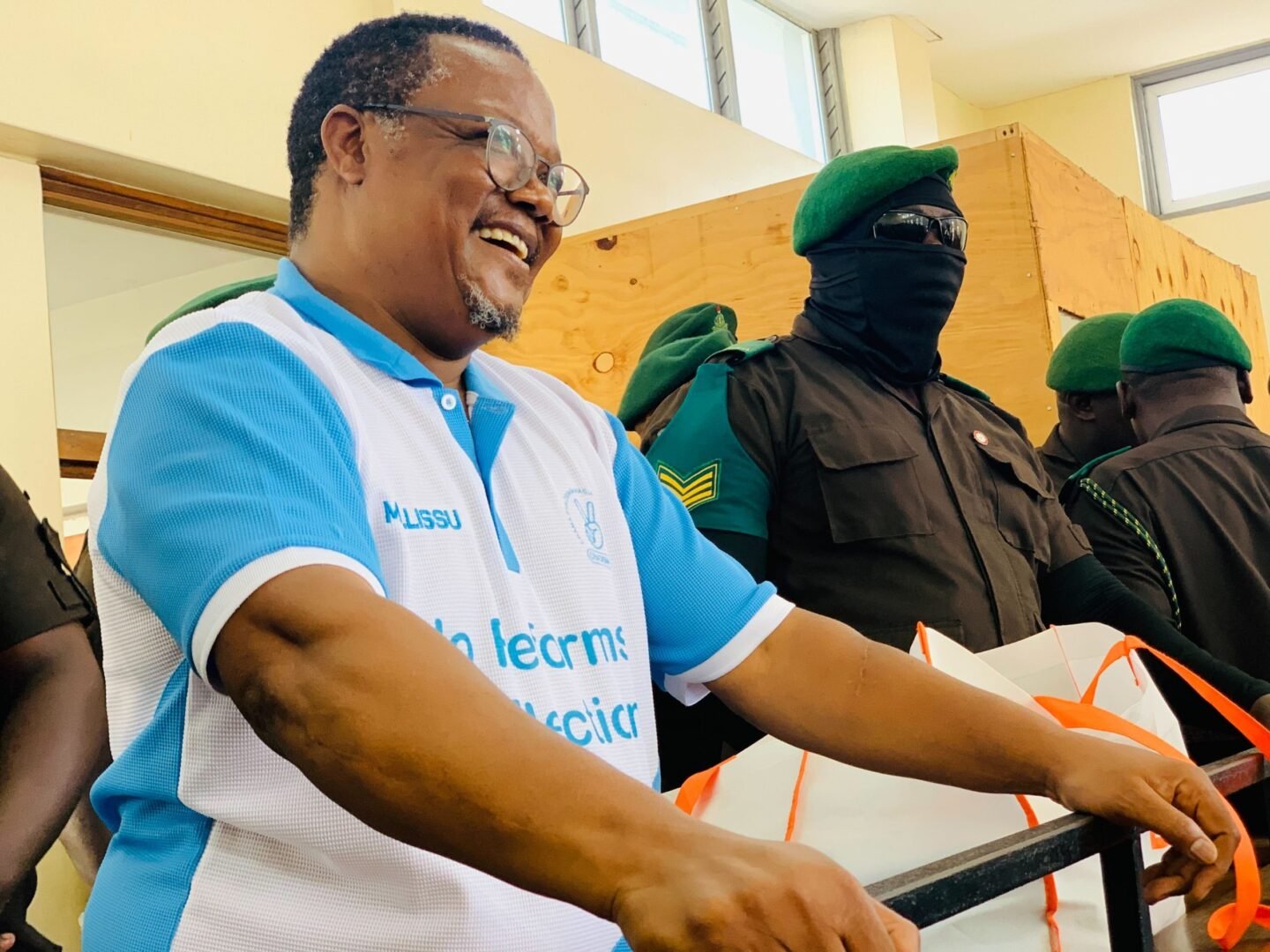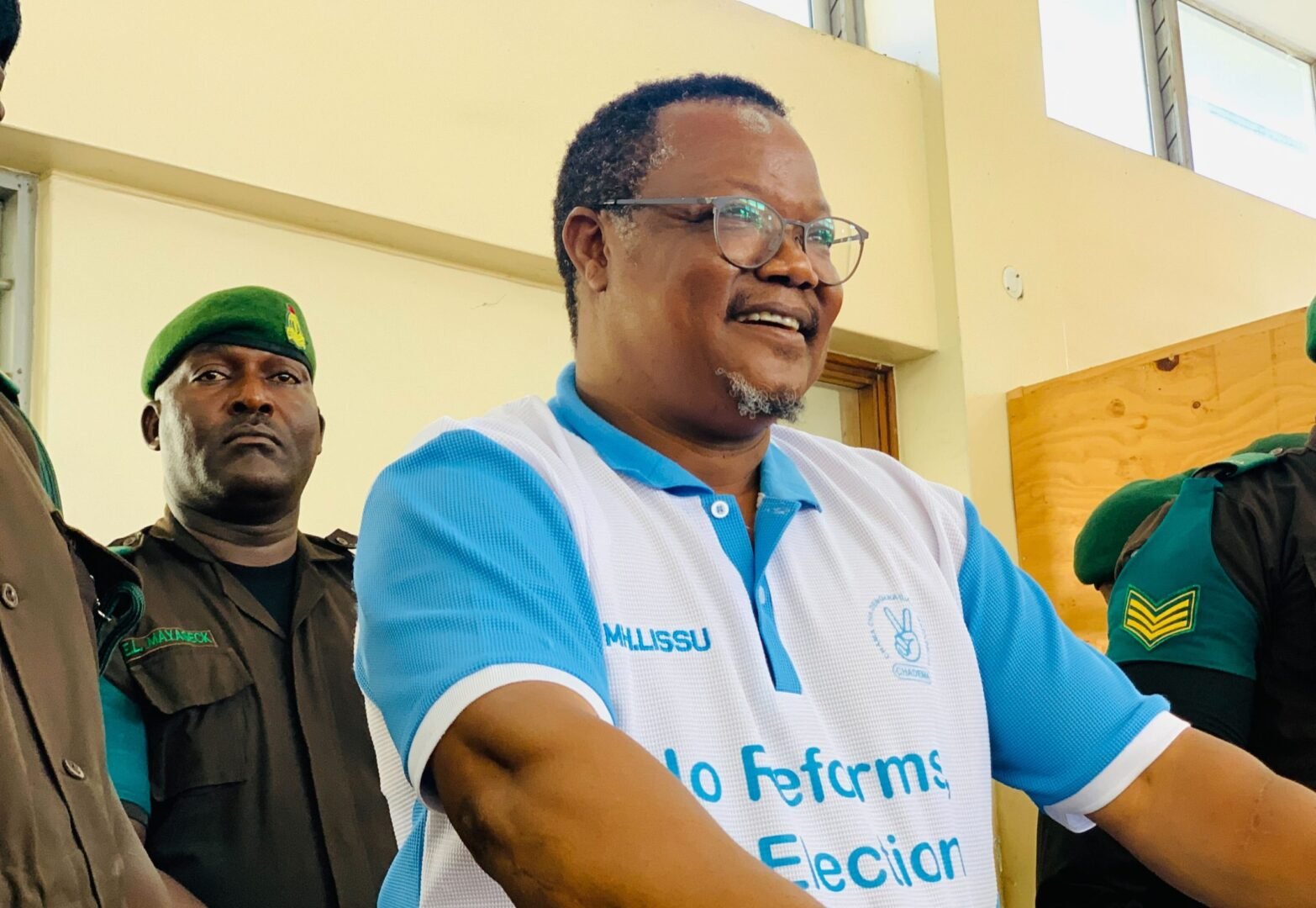DAR ES SALAAM, TANANIA — Tanzanian opposition politics is a perilous endeavor, as Tundu Antiphas Mughwai Lissu‘s experiences vividly illustrate.
His persistent criticism of the ruling regime has subjected him to a 2017 assassination attempt, in which he sustained 16 gunshot wounds, a failed presidential bid in 2020, and subsequent exile until his return to Tanzania in 2023.
Upon his return, Lissu continued his vocal opposition to President Samia Suluhu’s administration, alleging that it employs similar repressive tactics against critics as those used during the tenure of the late President John Magufuli. He also raised concerns about human rights abuses and the recent abductions and disappearances of citizens, including opposition figures.
The 57-year-old activist was arrested in April this year and charged with treason, an offense that carries the death penalty in Tanzania.

On Monday 19, May 2025 he entered the court with his fist raised in the air as supporters chanted “No Reforms, No Election,” according to a video of the courtroom shared by his CHADEMA party on X.
‘’We are now okay! This is a public trial; let’s meet in public. They wanted it, let them get it’’ said Lissu, who had donned a white T-shirt with a sky-blue strip written ‘’No Reforms No Election’’
Lissu, who was shot 16 times in a 2017 attack and came second in the last presidential poll, was charged with treason last month over what prosecutors said was a speech calling upon the public to rebel and disrupt elections due in October.
Tundu Lissu has vowed to continue pressuring the government, asserting his commitment to ensuring fair reforms before the general elections in October.
His party, Chadema, has been disqualified from participating in the elections after refusing to adhere to the electoral commission’s code of conduct, which the party views as a strategy to stifle opposition and consolidate state power.
His court hearing was scheduled for Monday, May 19th, at the Kisutu Magistrates’ Court.
Diplomatic scrutiny:
The East Africa Law Society invited legal representatives to observe the hearing, including People’s Liberation Party (PLP) leader Martha Karua.
Alongside Karua, human rights lawyer Gloria Kimani and journalist Lynn Ngugi, primarily from Kenya, were expected to attend the hearing.
However, they were detained at Julius Nyerere International Airport in Dar es Salaam on Sunday, and several were deported back to Kenya.
Karua reported that she, Law Society of Kenya (LSK) Council member Gloria Kimani, and Pan-African Progressive Leaders Solidarity Network member Lynn Ngugi were detained at the airport on Sunday afternoon.
The PLP party condemned the “disgraceful” deportations as “a blatant violation of the principles of the East African Community.” “That a prominent East African stateswoman can be treated in this manner, without due process or cause, is a stain on the integrity of regional cooperation,” the party stated. “This shameful action by President Samia Suluhu’s regime reflects a deep-seated fear of democratic scrutiny and the retrogressive entrenchment of authoritarian rule in Tanzania.”
Later in the evening, former Chief Justice Willy Mutunga and Kenyan activists Hanifa Adan and Hussein Khalid were also denied entry into Tanzania.
Meanwhile, armed individuals identifying themselves as officers appeared at activist Boniface Mwangi’s hotel room in Dar es Salaam on Sunday night.
Also Read: Martha Karua’s deportation from Tanzania exposes cracks in East African integration
He posted a video in which he refused to open his hotel room door, citing fears of abduction.
These incidents have raised questions about the reasons for denying Kenyan activists and lawyers entry into Tanzania.
President Suluhu’s administration has been accused of increasingly suppressing dissent, with police frequently disrupting rallies and arresting members of Lissu’s opposition Chadema party.
Her party, Chama Cha Mapinduzi (CCM), which has held power since independence, is unlikely to relinquish its control easily.

